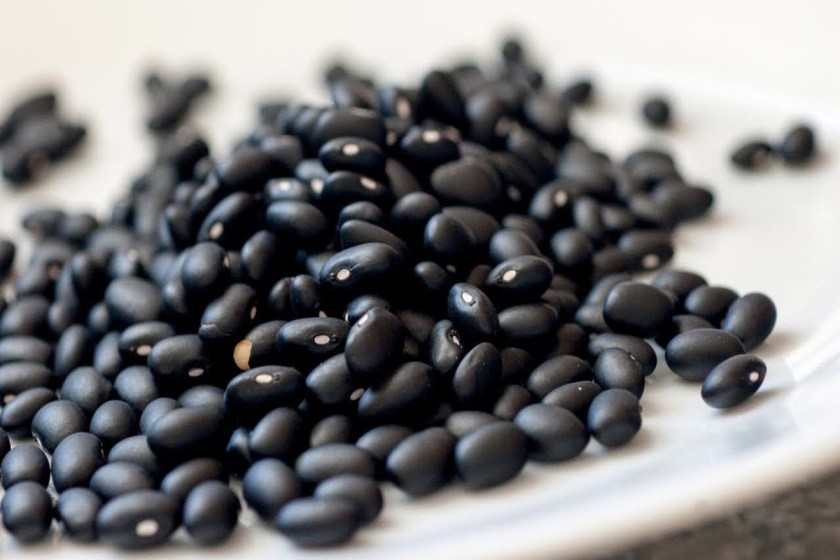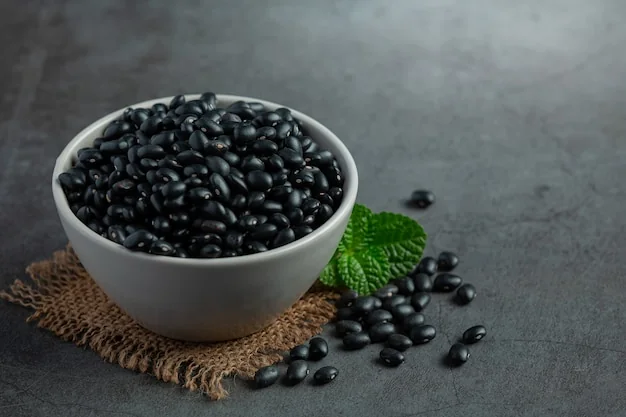Black beans, also known as turtle beans, are a staple in Latin American cuisine and increasingly popular worldwide due to their rich flavor, versatility, and impressive nutrient profile.
Beyond being a delicious addition to soups, salads, and rice dishes, black beans offer a wide range of health benefits, but they also come with certain considerations you should be aware of.
Nutritional Profile of Black Beans
Black beans are a powerhouse of nutrients. A single cup (about 170g, cooked) provides:
- Protein: 15g – making them an excellent plant-based protein source
- Fiber: 15g – promoting healthy digestion
- Iron: 20% of the daily value (DV)
- Folate (Vitamin B9): Over 60% of DV – essential for DNA synthesis and cell health
- Magnesium, Potassium, Manganese, and Phosphorus – minerals that support muscle, bone, and cardiovascular function
- Antioxidants: Rich in anthocyanins (the same compounds found in blueberries), which combat oxidative stress
Health Benefits of Black Beans
1. Supports Heart Health
The high fiber, potassium, and magnesium content in black beans helps regulate blood pressure, lower bad cholesterol (LDL), and reduce the risk of heart disease.
2. Stabilizes Blood Sugar
Thanks to their low glycemic index and high fiber, black beans release sugar slowly into the bloodstream, making them beneficial for people with insulin resistance or type 2 diabetes.
3. Promotes Digestive Health
The soluble and insoluble fiber in black beans supports a healthy gut microbiome and prevents constipation.
4. Boosts Energy and Red Blood Cell Production
Rich in iron and folate, black beans help prevent anemia and fatigue, especially important for vegetarians and vegans.
5. Protects Against Oxidative Stress
Their dark color indicates high levels of anthocyanins, antioxidants that may help reduce inflammation, protect cells, and support brain health.
6. Weight Management Ally
High in protein and fiber, black beans increase satiety and can help reduce overall calorie intake.
Possible Contraindications and Considerations
While black beans are generally safe and beneficial, there are a few things to keep in mind:
- Digestive Discomfort
- Black beans contain oligosaccharides, a type of carbohydrate that may cause gas and bloating. Soaking beans overnight and cooking them thoroughly can reduce this effect.
- Phytates and Mineral Absorption
- Black beans contain phytic acid, which can reduce the absorption of minerals like iron, calcium, and zinc. Pairing them with vitamin C-rich foods (e.g., tomatoes, bell peppers, citrus) can help improve absorption.
- Gout and Uric Acid Issues
- Though not very high in purines, black beans may contribute to uric acid buildup in sensitive individuals with gout if consumed in excess.
- Kidney Concerns
- People with chronic kidney disease may need to moderate bean intake due to their potassium and phosphorus content.
- Allergies (Rare)
- Though uncommon, some people may experience legume allergies.
How to Enjoy Black Beans
- Add to salads, grain bowls, or burritos
- Blend into dips and spreads
- Cook in soups, stews, and chili
- Use as a meat substitute in veggie burgers or tacos

Black beans are a nutrient-rich, affordable, and versatile food with numerous health benefits, from supporting heart health to boosting energy. While generally safe, individuals with digestive sensitivities, kidney concerns, or gout should consume them mindfully.
With proper preparation and moderation, black beans can be a delicious and powerful addition to a healthy diet.

